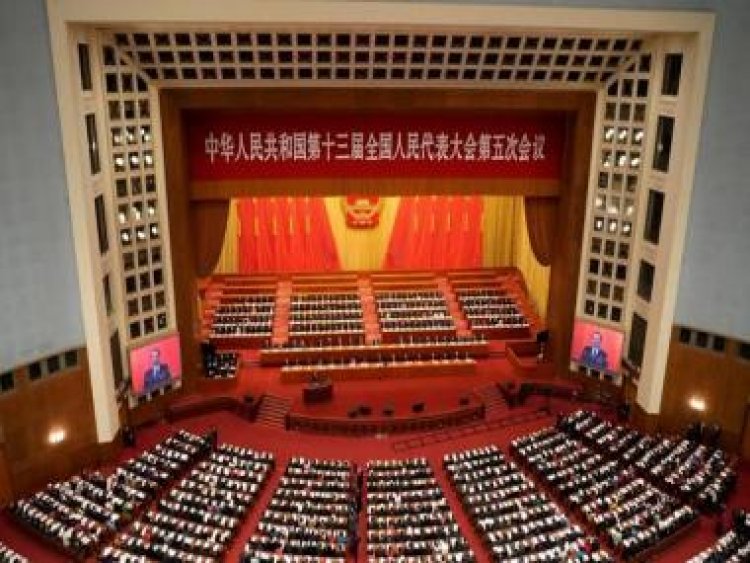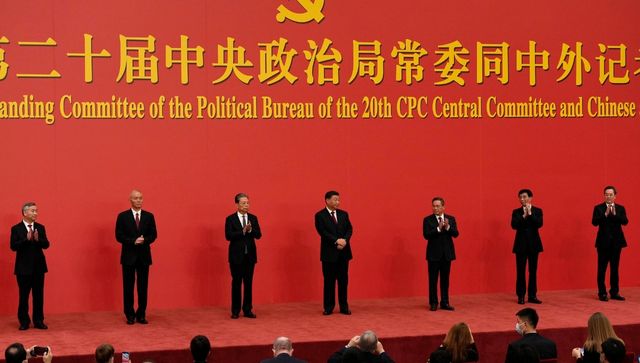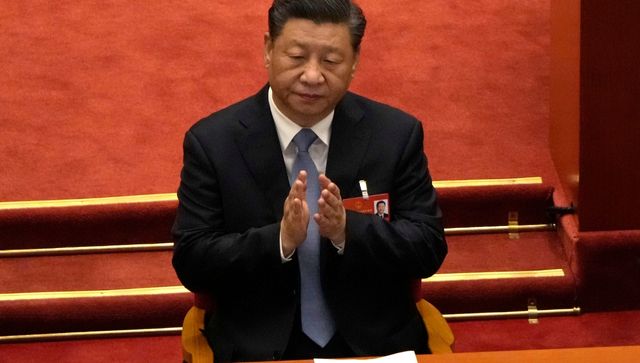What is China’s ‘Two Sessions’ and why is it important? What can we expect this time?
What is China’s ‘Two Sessions’ and why is it important? What can we expect this time?

China will kick off its much-anticipated annual legislative “Two Sessions” meetings on Saturday (4 March).
Thousands of delegates from across the country are reaching Beijing to attend the meetings that usually last for two weeks.
Many major announcements are expected in this year’s gatherings, the first after the Asian giant scrapped its controversial zero-COVID policy.
Let’s take a closer at what are these Two Sessions meetings, what to expect and why are they significant.
Two Sessions
Chinese People’s Political Consultative Conference (CPPCC) – a political advisory body – and the National People’s Congress (NPC) – China’s national legislature – hold their annual meetings separately, but at the same time, and thus the event is called “Lianghui” or “Two Sessions”, noted Reuters.
The 14th National Committee of the CPPCC will meet on Saturday, with President Xi Jinping likely to give the opening speech.
As per Japan Times, this advisory body comprises over 2,000 representatives who represent “ordinary members of civil society in China” including those from the arts, business, and legal worlds.

The NPC, which Western media describes as China’s “rubber stamping” parliament, has nearly 3,000 delegates who will meet on Sunday in the Great Hall of the People on the west side of Tiananmen Square in Beijing.
This “highest organ of state power” has the ability to amend the constitution of the country, noted Al Jazeera.
In reality, however, the ruling Communist Party is more powerful in the country, whose senior officials take the major policy decisions.
The NPC members, who hold office for five years, are selected by China’s administrative units, autonomous regions and the armed forces, reported Al Jazeera.
Out of the 2,977 delegates in the 14th NPC, 790 (or 26.5 percent) are women and 442 (or 14.8 percent) come from ethnic minority groups.
This body meets annually to discuss legislation and make appointments to government posts. It also oversees the State Council – China’s cabinet, reported Reuters.
The NPC’s 170-member NPC Standing Committee meets more frequently to approve legislation. It can also amend semiautonomous Hong Kong’s mini-constitution.
Appointments and reshuffle
As the 14th NPC assembles, Xi is expected to secure a third term as president.
Last October, he had won a third five-year term as party general secretary at the 20th Communist Party Congress.
Li Qiang, the party’s second-highest official and Xi ally, is also set to be confirmed as the country’s new premier.

Experts say Li’s actions, as he takes over the post, are unlikely to be seen as “potential challenges” to Xi – who holds unparalleled power in the party.
Speaking to South China Morning Post (SCMP), Dong Zhang, a political scientist at Hong Kong University of Science and Technology, said that Li’s closeness to Xi may give him more freedom than his predecessor – Li Keqiang.
“Li Qiang will be someone very important in the Chinese system, but still one weakened compared to his predecessors in the old days. And it will take time for him to own a range of issues,” he added.
In the major expected reshuffle, Xi loyalists will likely be appointed to top government positions.
Observers will keep a close eye on the appointments to the State Council, the CPPCC, NPC chair, vice premiers, state councillors and head of the Supreme Court and other ministers.
JPMorgan analysts told CNBC that they believe these meetings could also see an “unprecedented” reshuffle of the country’s economic team.
They are expecting new heads for the National Development and Reform Commission – China’s economic planner – the finance ministry, the banking regulator and the securities regulator, reported CNBC.
Sources have told Reuters, He Lifeng, a Xi confidant, will likely become vice premier in charge of the economic portfolio, while top state bank official Zhu Hexin is likely to succeed Yi Gang as central bank governor.
Major announcements expected
The Two Sessions meetings will pave the way for China’s economic and policy goals for the year.
At the opening session of the NPC, the country will declare its central and local government budgets, military spending budget as well as set the economic growth target which could be as high as 6 per cent, as per Reuters sources.
“One of the most closely watched items is how China will set its growth target and relevant policies,” Guan Tao, the global chief economist at Bank of China’s BOC International told the state-run Global Times.
The targets for inflation, employment and the fiscal deficit will also be revealed.
China’s economy, which was hit due to pandemic-induced lockdowns and other strict measures, is gaining momentum following the sudden abandonment of the zero-COVID strategy at the end of last year.
Dali Yang, a political scientist at the University of Chicago, told SCMP, “Nothing can compare with the challenges faced in economic growth and job creation”.
“I think the utmost priority now for them is to let the country recover”.
Xu Mingqi, a professor of economics at the Shanghai Academy of Social Sciences, said “adequate” policy support can be expected to strengthen the economy.
“Construction of infrastructure projects that were halted has restarted. The government is set to borrow more to drive recovery,” he told SCMP.
As per SCMP, Beijing could also set several long-term goals such as technological self-reliance.
State media says the review of a “reform plan” for the ruling party and state institutions including overhauling financial and technology sectors as well as bolstering party-building in the private sector could take place.
Ether Yin of Trivium China, a policy research consultancy in Beijing, said: “One thing to watch is whether the party will exercise more power on tech policy, which is key for the country to get through the tech competition with the US”, reported Japan Times.
Delegates can also deliberate on China’s low birth rate after the country’s population plunged for the first time in 60 years.
With inputs from agencies
Read all the Latest News, Trending News, Cricket News, Bollywood News,
India News and Entertainment News here. Follow us on Facebook, Twitter and Instagram.
What's Your Reaction?



























































